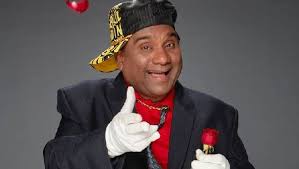Doctors’ Day is an annual observance dedicated to honoring the contributions and sacrifices of medical professionals worldwide. This special day serves as a reminder of the invaluable role that doctors play in promoting health, saving lives, and advancing medical knowledge and innovation. In this comprehensive exploration, we delve into the history of Doctors’ Day, its significance, the contributions of doctors, and ways to celebrate and appreciate these healthcare heroes.
1. History of Doctors’ Day:
Doctors’ Day has its origins in various countries, each with its unique historical context and significance.
- United States: The first Doctors’ Day in the United States was observed on March 30, 1933, in Winder, Georgia. The date was chosen to honor Dr. Crawford W. Long, who performed the first ether anesthesia surgery on March 30, 1842. The U.S. Congress officially recognized Doctors’ Day in 1990.
- India: In India, Doctors’ Day is celebrated on July 1st, commemorating the birth anniversary of Dr. Bidhan Chandra Roy, a renowned physician and former Chief Minister of West Bengal. Dr. Roy’s contributions to healthcare and public service exemplify the dedication and selflessness of doctors in India.
- International Observance: Beyond specific national dates, Doctors’ Day is also observed internationally on various dates, emphasizing the global appreciation for medical professionals’ contributions across borders.
2. Significance of Doctors’ Day:
Doctors’ Day holds profound significance for several reasons, acknowledging the vital role of doctors in society:
- Gratitude: It provides an opportunity for patients, communities, and institutions to express gratitude and appreciation for the tireless efforts and compassionate care provided by doctors.
- Awareness: Doctors’ Day raises awareness about healthcare challenges, medical advancements, and the importance of preventive care, promoting public health education and advocacy.
- Recognition: It recognizes the dedication, expertise, and sacrifices of doctors who work tirelessly to save lives, alleviate suffering, and improve overall well-being.
- Inspiration: Doctors’ Day inspires future generations to pursue careers in medicine, fostering a culture of excellence, empathy, and professionalism in healthcare.
3. Contributions of Doctors:
Doctors make multifaceted contributions to society and healthcare systems:
- Medical Care: Doctors diagnose illnesses, provide treatment, perform surgeries, and prescribe medications, playing a crucial role in maintaining individual and community health.
- Preventive Medicine: They promote preventive measures such as vaccinations, screenings, and lifestyle modifications to prevent diseases and promote overall wellness.
- Research and Innovation: Doctors engage in medical research, clinical trials, and innovations in treatments, technologies, and healthcare delivery methods, advancing medical science and improving patient outcomes.
- Education and Advocacy: Doctors educate patients, families, and communities about health issues, disease prevention, and treatment options. They also advocate for public health policies, healthcare access, and medical ethics.
4. Celebrating Doctors’ Day:
There are various meaningful ways to celebrate Doctors’ Day and express gratitude towards healthcare professionals:
- Recognition and Appreciation: Hospitals, clinics, and healthcare organizations can organize recognition events, award ceremonies, or appreciation programs to honor doctors and healthcare teams.
- Thank You Notes and Messages: Patients and their families can send personalized thank you notes, cards, or messages expressing appreciation for the care and support received from doctors.
- Educational Programs: Organize health awareness workshops, seminars, or webinars led by doctors to educate communities about common health issues, preventive measures, and healthy lifestyles.
- Gifts and Tokens of Appreciation: Consider gifting thoughtful items such as flowers, books, or wellness baskets to show appreciation to doctors and healthcare professionals.
- Community Service Projects: Participate in or organize community service projects, health camps, or blood donation drives in collaboration with medical professionals to promote community health and well-being.
- Social Media Tributes: Share stories, testimonials, or social media posts highlighting the impactful work of doctors and their contributions to healthcare.
5. Challenges and Acknowledgment:
While Doctors’ Day is a time of celebration and appreciation, it also sheds light on the challenges faced by medical professionals:
- Workload and Burnout: Doctors often work long hours, face high patient volumes, and deal with emotionally taxing situations, leading to burnout and stress.
- Resource Constraints: Inadequate healthcare infrastructure, limited resources, and funding constraints in certain regions can pose challenges in delivering optimal patient care.
- Healthcare Inequalities: Disparities in healthcare access, affordability, and quality exist, impacting marginalized communities and underserved populations disproportionately.
- Mental Health: The demanding nature of medical practice, coupled with intense work environments, can affect doctors’ mental health and well-being, highlighting the need for support and resources.
Acknowledging these challenges underscores the importance of holistic support systems, healthcare reforms, and initiatives to prioritize doctors’ well-being, work-life
Continue generating






